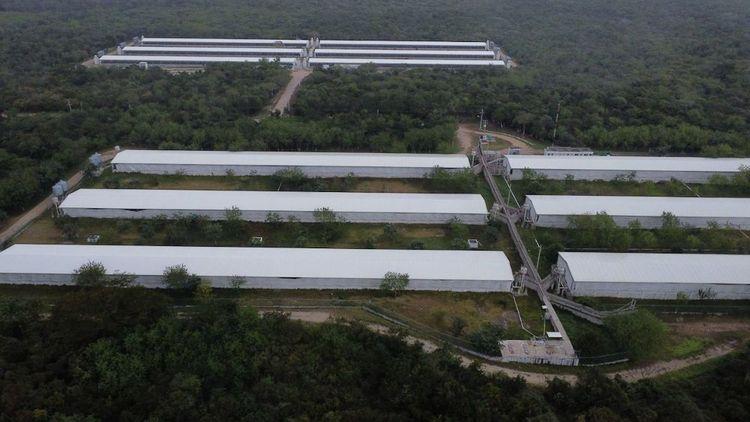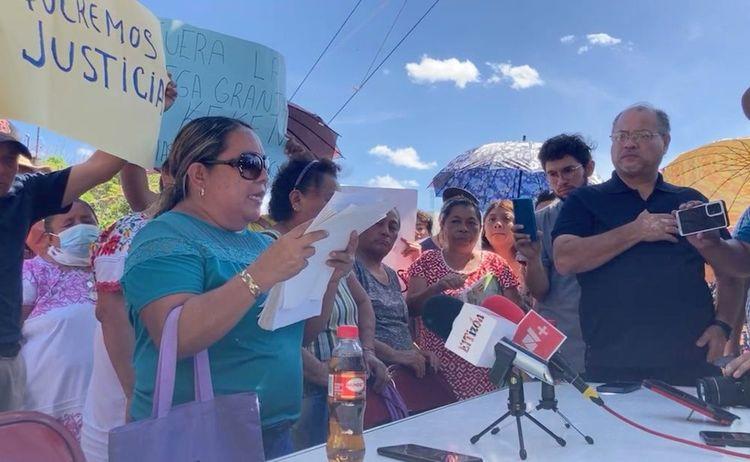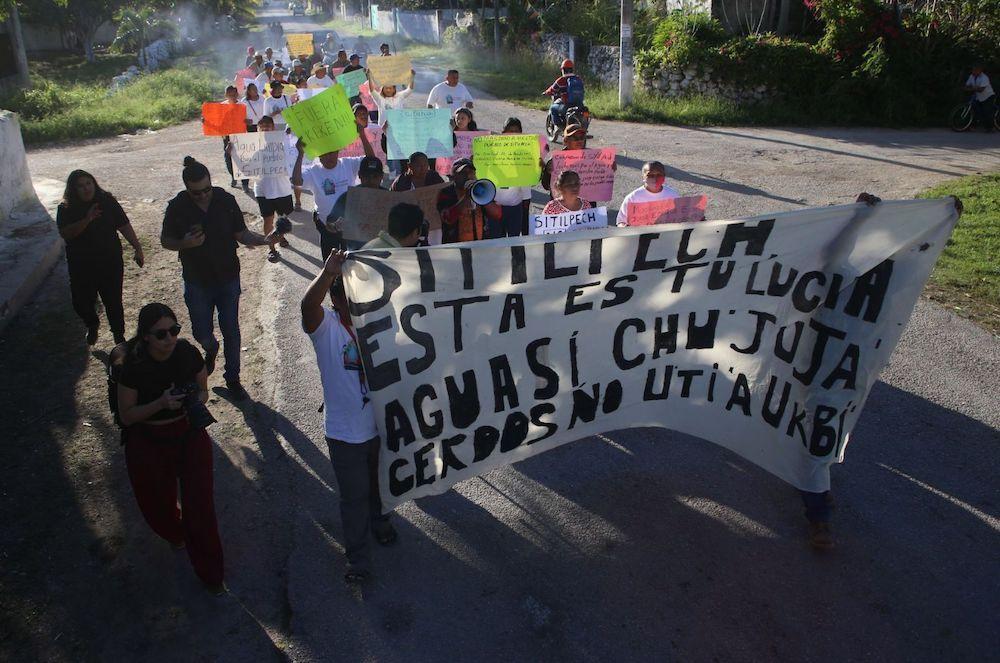After the attacks that occurred on February 18 by police against the Mayan community of Sitilpech, in southeastern Mexico, residents submitted a declaration that seeks that any pig farm or industrial project must have the authorization of residents.
“If any company or authority wants to establish a megaproject that affects the territory or environment of Sitilpech, they must first consult and ask for the consent of the people. This means that we must be informed and they must allow us to make a collective decision,” said the statement, which was read at a press conference on February 22.
The document is divided into five points related to the protection of their rights and the rejection of new pig farms. Plus five other points that break down that, if you enter a project, a public consultation in Mayan and Spanish will be necessary, with one month's notice and without buying votes.
It also includes a rejection of the operations of the Kekén mega-farm, with which the community in the state of Yucatán faces a legal fight over water and air pollution.
“The people of Sitilpech are the authority that decides everything related to their land, territory and environment in relations with companies and industries,” says the declaration signed by the community. This will be promoted before local and federal authorities with the support of Kanan Human Rights A.C.
Sitilpech is a Mayan community located in the municipality of Izamal, state of Yucatán. In 2021, they began a legal defense that they called “The Hope of Sitilpech” against pig farms.
The actions were taken when the mega-farm in the region, owned by the company Productos Pecuarios para Consumo (a sharecropper from Kekén and known by the same name), obtained a permit to double its production, from 22,000 pigs to around 50,000.

The presence of mega-farms in Yucatán has caused social conflicts. Photo: Martín Zetina/Cuartoscano
In Yucatán, where the pig industry has boomed, the damage to the environment, health and territory that this type of farm brings with it has been documented. Especially the contamination of water reserves such as cenotes.
The Mayan community of Sitilpech had already succeeded in suspending operations of the mega-farm, but in January the judge of the Collegiate Court of Mérida, Jorge Enrique Edén Winter, favored Kekén and work resumed.
This led to the community maintaining a blockade on the farm since February 8. It lasted 10 days until last Saturday morning when they were attacked by around 70 state and municipal police officers.
“State police from Yucatán and municipal police from Izamal repress, besiege and physically attack members of La Esperanza de Sitilpech in the channel blocking the farm. In addition, chairs, tables and cell phones were stolen to avoid documenting the fact,” reported the organization Kanan Human Rights A.C. through its social networks, where videos of attacks against men, women and older adults were also broadcast.
The following day, a federal court ordered a halt to police intervention against the community of Sitilpech.
“We welcome this decision, which guarantees the rights to freedom of expression, to protest and to defend human rights,” Kanan shared.

Press conference by the Sitilpech community for the presentation of a declaration. Photo: Kanan A.C.
During the press conference for the presentation of the declaration, there were also some of the people attacked early Saturday morning, who reported that a woman is still hospitalized for blows to the head.
According to the community, so far there has been no approach by the Yucatán authorities for a dialogue regarding what happened in recent days. But the next step before the law is to recognize the validity of the declaration.
Regarding legal defense, Kanan A.C commented that the court's decision to continue operating the mega-farm is not a sentence, but rather that the community's demand for formalism was dismissed, so they hope to continue in the battle.
Under the shouts of slogans such as “No Farms, Water Yes” and “Out Kekén”, people from other communities such as Seyé and Samahil were also present to present their own cases of pig farms and other industrial megaprojects in the state.



Comentarios (0)